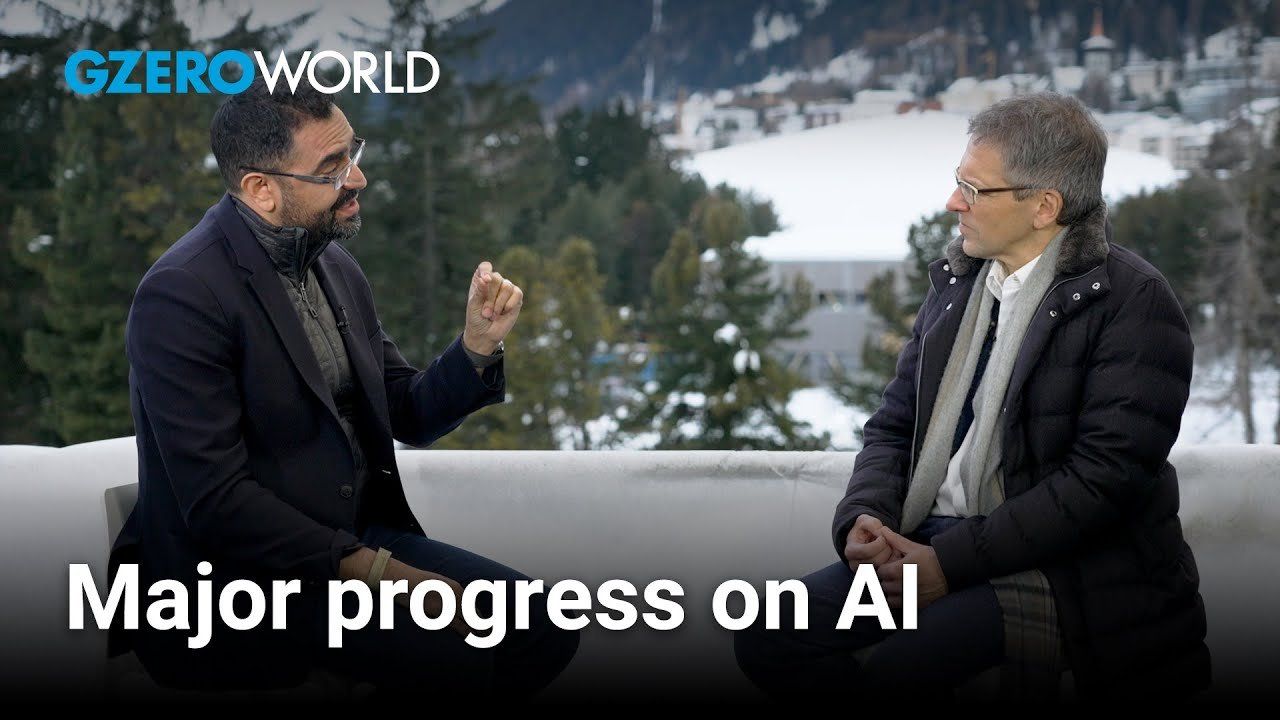
Nuanced AI conversations a major progress, says expert Azeem Azhar | GZERO World
Tech expert Azeem Azhar is optimistic the conversation around generative artificial intelligence has shifted from existential risk to practical applications at the World Economic Forum in Davos. Artificial intelligence dominated the conversation at this year’s World Economic Forum in Davos, but what is the business world getting right vs. wrong about how it will affect our lives? On GZERO World, Ian Bremmer sat down with AI expert and writer Azeem Azhar for his take on how conversations around the rapidly developing technology have changed in the last year. Unlike previous flash-in-the-pan technologies like crypto and blockchain, Azhar notes, AI is just getting started, and almost every CEO he spoke with has integrated it into their business in some way. Catch Azeem Azhar's full conversation with Ian Bremmer in next week's episode of GZERO World on US public television. Check local listings.
“The thing that’s surprised me most is how well CEOs are [now] articulating generative AI, this technology that’s only been public for a year or so,” Azhar says,” “I’ve never experienced that in my life and didn’t realize how quickly they’ve moved.”
Azhar and Bremmer also discuss the underlying technology that’s allowed generative AI tools like ChatGPT-4 to advance so quickly and where conversations about applications of artificial intelligence go from here. Whereas a year ago, experts were focused on the macro implications of existential risk, Azhar is excited this year to hear people focus on practical things like copyright and regulation—the small yet impactful things that move the economy and change how we live our lives.